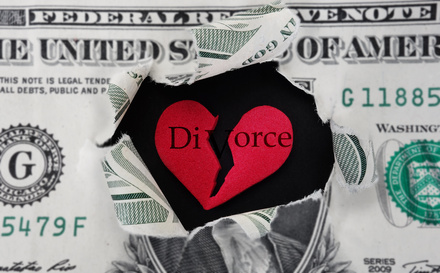Going through a divorce is emotional. It’s also a large financial decision.
While many focus on splitting assets, an extended analysis is needed to ensure you can afford your post-divorce lifestyle.
Before agreeing to your divorce settlement, assess these key areas for your post-divorce lifestyle.
1- Expenses(including health care)
Calculate how much you spend. Look at your year-end statements to assess this amount.
If you plan to keep your house, include maintenance, upcoming major repairs/replacements (e.g., water heater, roof, etc.), property taxes, and home insurance.
Identify which expenses you can easily reduce. Most people can easily cut how much they spend on groceries, dining out, travel, pet care, shopping, and entertainment.
2- Income
Next, look at your income. Will your income pay for all your expenses?
If not, will you need additional education or training to find a higher-paying job?
If you need additional education, have your family law attorney include that expense in your divorce settlement.
If you plan to refinance your home or purchase a new home, income is important to qualify for a mortgage.
3- Retirement
And lastly, calculate your retirement shortfall. This step is especially important if you are going through a divorce later in life.
It’s harder to catch up on retirement savings when you’re older because you can’t benefit from time for investment growth.
When assessing your retirement, include long-term care and healthcare costs.
When you have this information, you’ll need to make tough decisions.
Unfortunately, your post-divorce lifestyle will differ from your married lifestyle.
Is it really worth fighting for the house when you can’t afford to pay for ongoing maintenance?
If you have a retirement shortfall, can you swap some assets for retirement assets?
If you return to school, how will your expenses be paid during that time?
If you take a lump sum settlement, will you be pushed into a higher tax bracket?
Your divorce settlement is a major financial decision. It will impact your post-divorce lifestyle now and in the future.
While your attorney understands the legal process, work with a Certified Financial Planner™ who specializes in divorces to assess your financial situation.
Divorce is a significant life transition, be smart about it.
(Update to original post from June 28, 2017)
ABOUT THE AUTHOR:

Niv Persaud, CFP®, CDFA®, RICP®, is a Managing Director at Transition Planning & Guidance, LLC. Life is more than money. It’s about living the lifestyle you want and can afford. For that reason, Niv consults with clients on money, life, and work. Her approach capitalizes on techniques she learned throughout her career, including as a management consultant, executive recruiter, and financial advisor. Her services include developing comprehensive financial plans, divorce financial reviews, and retirement plans. Niv actively gives back to her community through her volunteer efforts. She believes in living life to the fullest by cherishing friendships, enjoying the beauty of nature and laughing often — even at herself. Her favorite quote is by Erma Bombeck, “When I stand before God at the end of my life, I would hope that I would not have a single bit of talent left and could say ‘I used everything you gave me.’”

